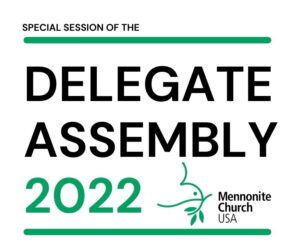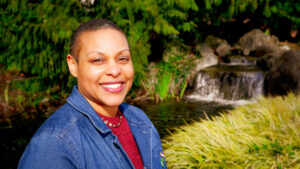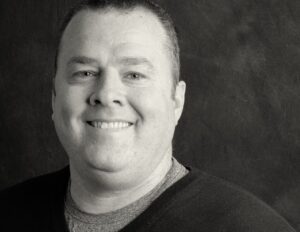 ELKHART, Indiana (Mennonite Church USA) — Mennonite Church USA (MC USA) has engaged professional facilitators to help create a more comfortable and safer environment for discussions at its upcoming Special Session of the Delegate Assembly in Kansas City, Missouri, May 27-30, according to Iris de León-Hartshorn, MC USA associate executive director.
ELKHART, Indiana (Mennonite Church USA) — Mennonite Church USA (MC USA) has engaged professional facilitators to help create a more comfortable and safer environment for discussions at its upcoming Special Session of the Delegate Assembly in Kansas City, Missouri, May 27-30, according to Iris de León-Hartshorn, MC USA associate executive director.
“It’s important to recognize that people have different learning and communication styles,” said de León-Hartshorn. “A facilitated discussion provides a variety of ways for people to speak into an issue and helps them say it in ways that are more loving and respectful of each other. It helps reduce the stress level for people and provides a safer environment than open-ended conversation, which can be very emotional,” she added.
The schedule for the Special Session of the Delegate Assembly includes three facilitated discussions addressing the resolutions on which delegates will vote. These are:
- Clarification on Mennonite Church USA Polity and the Role of the Membership Guidelines of Mennonite Church USA.
- A Resolution for Repentance and Transformation (if delegates first affirm that they will vote on this. See “Delegate Process” for more information.)
- For Justice Resolution
Delegates will sit in assigned table groups during the business sessions. A community building exercise will help delegates get to know each other. The facilitators will provide the delegates with questions to discuss at their tables. Afterward, the table groups will share about their discussions in a general forum.

Sidney Morgan
Leading the facilitated discussions will be:
- Sidney Morgan, a nationally recognized facilitator, mediator, speaker and consultant specializing in diversity, equity and inclusion work, restorative justice practices and conflict transformation. She has her own consultancy, Red Sea Road Consulting, LLC, and over 18 years of experience as a restorative justice practitioner and certified conflict mediation facilitator. Morgan holds a master’s degree in Transformational Leadership and Restorative Justice from Eastern Mennonite University, Harrisonburg, Virginia.
-

Matt Tibbles
Matt Tibbles, an organizational development and conflict transformation professional with experience working in multi-ethnic for-profit businesses, higher education and non-profit organizations in developing and implementing organizational development strategies with a specialization in trauma-informed and resilient-based strategies/practices. Tibbles has a master’s degree in Conflict Transformation from Eastern Mennonite University (EMU). He currently serves as an instructor at EMU and a lead facilitator of its Trauma-Informed and Resilient Pedagogy Work Group.
MC USA vetted the facilitators for their expertise, communication skills with diverse audiences, impartiality on the discussion topics and collaborative experience working together, said deLeón-Hartshorn. This is not the first time the denomination has used professional facilitators for events and meetings. MC USA engaged facilitators at the Future Church Summit in 2017.
“There are many benefits to a facilitated discussion,” said Morgan. “It is an opportunity for participants and the facilitators to morally, emotionally, intellectually and physically engage in the dialogue – opportunity without judgment and dialogue with open hearts and true understanding of all perspectives,” she added.
Additional facilitation assistants will include:
- Lorraine Stutzman Amstutz., MC USA denominational minister of Peace and Justice.
- Michelle Armster, executive director of Mennonite Central Committee (MCC) Central States and a member of Lorraine Avenue Church, Wichita, Kansas.
- Michael Danner, MC USA associate executive director.
- Karin Kaufman Wall, peace and justice education coordinator for MCC Central States and a member of a member of Bethel College Mennonite Church, North Newton, Kansas.
- Sandra Montes-Martinez, associate conference minister, Western District Conference.
“One of the best ways to prepare for the facilitated discussions is to practice suspending personal judgement,” said Tibbles. ‘An excellent way to practice this skill is to respond with curiosity when you might disagree with something someone says. Use questions like ‘I don’t know if I understand what you said, would you please tell me more?’ or ‘I don’t know if I agree with you, but would you be willing to say more?’ By practicing responding with curiosity, we are better equipped to suspend judgement, empathize with others and learn from the lived experiences of others,” he added.
Discussion guidelines and community building cards will be at each table as delegates arrive. Morgan and Tibbles also have provided a helpful guide for delegates, titled “Expectations of Group Discussions,” adapted from the work of Dr. Catherine Barnes, adjunct faculty member at EMU’s Center for Justice and Peacebuilding. Download it here: [English] [Spanish]
De León-Hartshorn said she has found Ephesians 4-6 to be especially meaningful in her personal preparation for the Special Session of the Delegate Assembly:
“There is one body and one Spirit, just as you were called to one hope when you were called; one Lord, one faith, one baptism; one God and Father of all, who is over all and through all and in all.” NIV
“This verse means a lot to me,” she said. “We can have all kinds of diverse opinions. We may not agree on every subject. But if we can love each other and know that we come together, under the one baptism, one faith and one Lord, and we really strive to be loving to each other, that’s a big witness to the world. The world is so divided – is there a way that we can stay together? Even when we have these different opinions and feel so strongly about them? Can our one baptism be our point of entry in unity?” de León-Hartshorn asked.
For more information about the Special Session of the Delegate Assembly, including staff impact statements about the possible impact of each of the resolutions, visit the Delegate Assembly resource page here.
The registration deadline for delegates is May 16. As of the date of this release, 476 delegates have registered.
Mennonite Church USA (MC USA), is the largest Mennonite denomination in the United States with 16 conferences, approximately 530 congregations and 62,000 members. An Anabaptist Christian denomination, MC USA is part of Mennonite World Conference, a global faith family that includes churches in 58 countries. It has offices in Elkhart, Indiana and Newton, Kansas. mennoniteUSA.org
Updated May 5, 12, 2022

